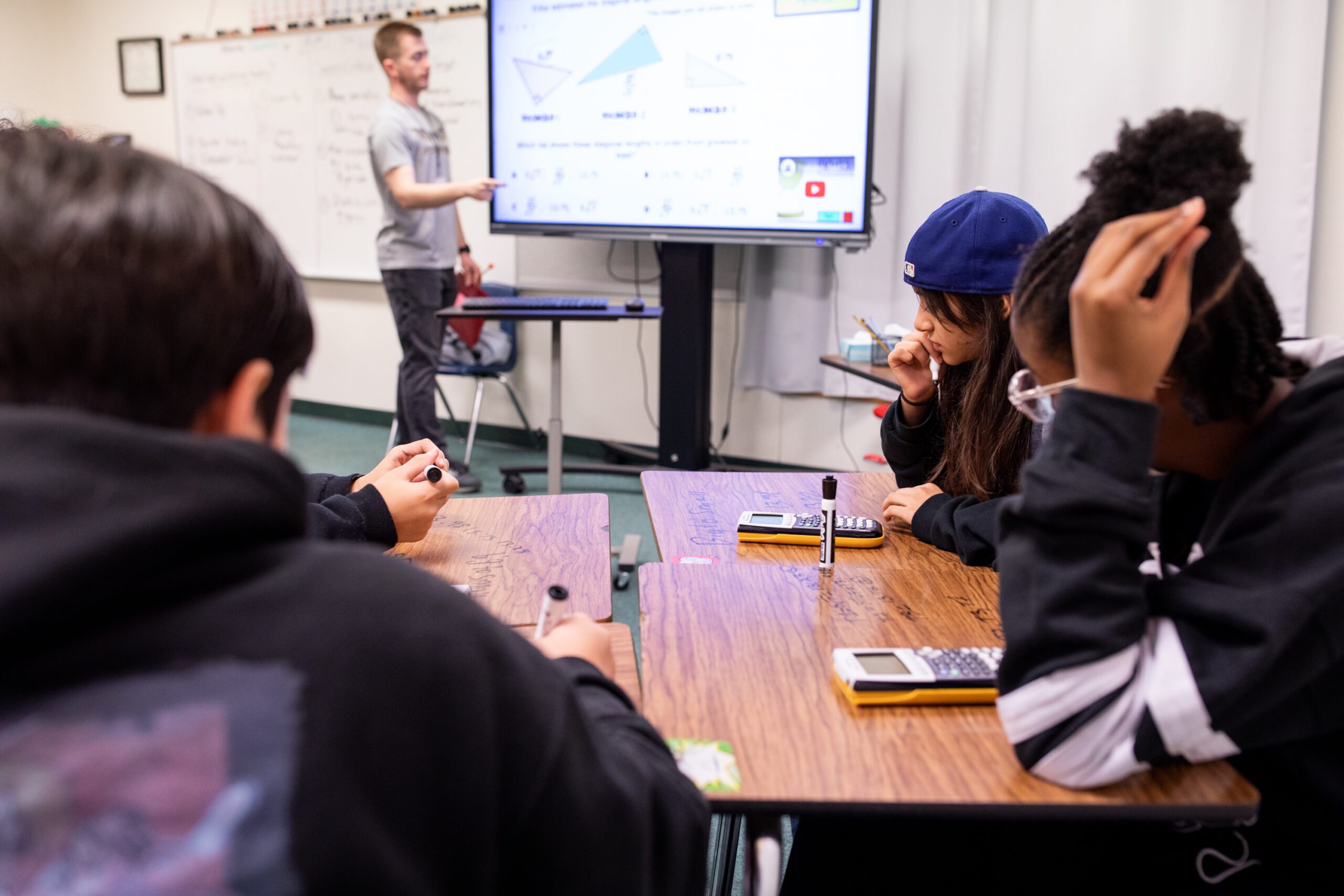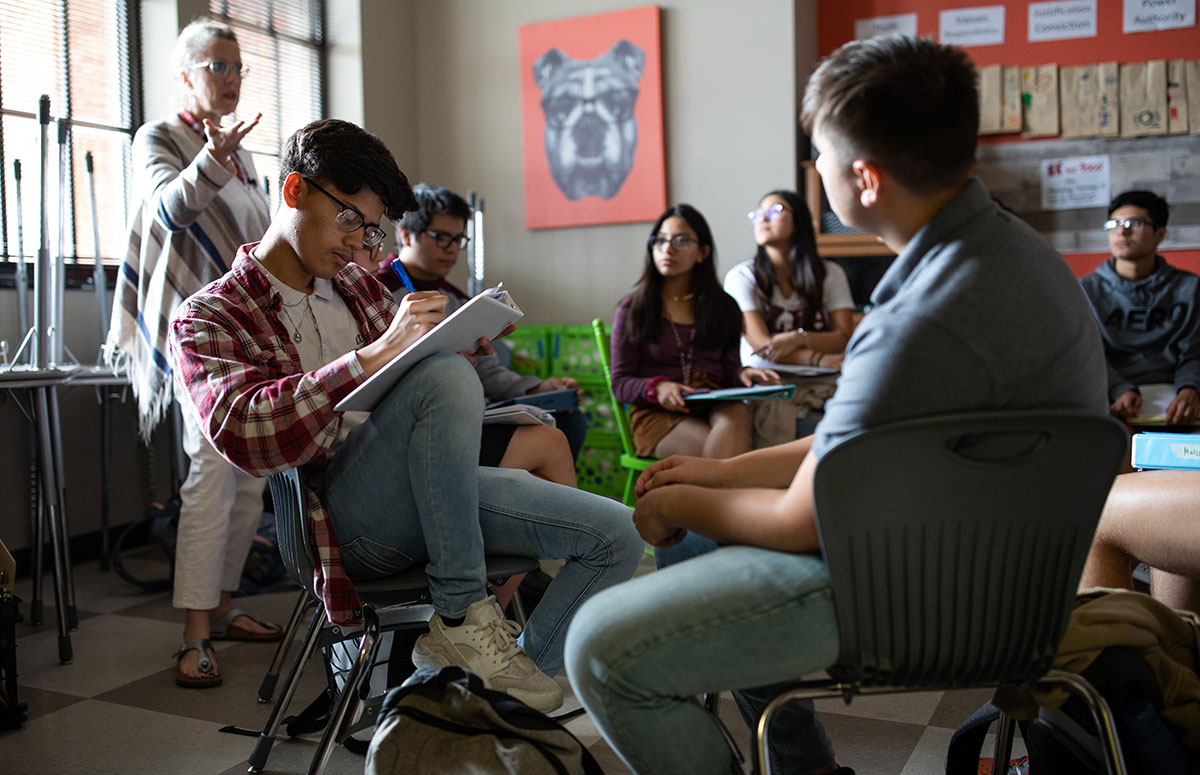
categories
Across The Lawn Feb. 3, 2023

February 03, 2023

Raise Your Hand Texas has a front-row seat to the Capitol. From our vantage point, public education policy issues have never been more important, and this is why we must make every session a public education session.
The One Thing to Do
1. Is your state senator on the Texas Senate Committee on Education?
Do you want to know more about the senators who were appointed to vote on important education policy issues in this committee? Check out all of the committee members here.
The Five Things to Know
1. High School Campus A-F School Ratings Set to Drop if Technical Changes Move Forward at the Texas Education Agency
The Texas Education Agency recently released new cut scores and scaling resources for what it calls its school accountability reset.
Within a series of proposed technical changes in how TEA calculates our state’s school A-F ratings, there are several changes that stand out as ways that could lower hundreds of high school campus A-F letter grades this school year.
Under the proposed rules, TEA will increase the scale score for how it calculates college, career and military readiness indicators (CCMR), which make up a significant portion of a high school campus accountability A-F letter grade. It’s important to note, the data used for CCMR scores actually lag by a year, meaning TEA will use data from students that graduated in 2022 to calculate the A-F ratings for 2023. CCMR data include meeting criteria on SAT, ACT, TSIA, AP exams, completing dual credit, associates degrees, OnRamps, IBC, programs of study, industry based-certification, or military readiness.
The proposed changes in the CCMR scale score can be seen in the resources provided by TEA. In simple terms, TEA is changing how it grades on a curve. It is moving from a 60 scale score equaling an “A” to 88 scale score equaling an “A.” The agency is basing its new scale score of 88 on college enrollment and college persistence, not just college readiness.
Add these accountability changes to the redesign occurring with the STAAR test this year, and it becomes difficult to have confidence in the true impact of instruction and the outcomes on school quality and student success our schools are having on our students. Our students and schools should have at least a year to adapt to these significant changes being proposed and not be penalized for so many moving pieces that will culminate all at once and drastically impact school ratings.
Additionally, elected officials should have an opportunity to review these important changes and their impact on campuses/districts before the revised rules go into effect.
2. Governor Abbott Announces His Support for Education Savings Accounts in Texas
This week Governor Abbott announced his support for a voucher program known as Education Saving Accounts (ESA), which divert funds from public schools into private accounts for parents to use at private schools, or for private education vendors.
Any form of school vouchers will divert scarce public education funds to private schools, which are not required to comply with federal protections for students with disabilities or report and track spending or student performance.
For these reasons, Raise Your Hand Texas opposes vouchers and supports keeping education tax dollars in public schools and investing in quality public school choice and innovative programs.
3. Secretary Cardona Details Four Key Priority Areas, including Teacher Workforce, Universal Pre-Kindergarten, and Participating in Extracurricular Activities
Last week, U.S. Secretary of Education Miguel Cardona laid out key actions in four priority areas that will guide the U.S. Department of Education’s work over the coming months and years:
- Support students through pandemic response and recovery.
- Boldly address opportunity and achievement gaps.
- Make higher education more inclusive and affordable.
- Ensure pathways through higher education lead to successful careers.
Secretary Cardona offered several policy solutions to address those goals, including investments in a diverse teacher workforce, universal pre-kindergarten, and increased access to social, emotional, and mental health supports for students. He also challenged individual states and districts to “fix broken systems that may perpetuate inequities in our schools.”
4. Public Education Bills Continue to Be Filed by Texas Legislature
With just over a month remaining until the March 10th filing deadline, there are numerous bills of interest being filed on a daily basis. A few bills of note:
- HB 1416 filed by Rep. Keith Bell proposes changes that would allow more flexibility to schools providing accelerated and supplemental instruction to students who do not pass STAAR and EOCs.
- HB 1548 by Rep. James Talarico raises salaries for teachers, counselors, nurses, and librarians by $15,000 per year.
- HB 1672 by Rep. Jacey Jetton increases the basic allotment from $6,160 to $6,700 and requires TEA to submit a biennial inflation-adjusting estimate to the Legislative Budget Board.
You can find Raise Your Hand Texas’s priorities on these topics here
5. Upcoming Legislative Hearings
The Senate Committee on Finance is scheduled to meet at 10:00 am on Monday, Feb. 6 to discuss public education finance topics including TEA, the Permanent School Fund, and the Teacher Retirement System.
For more information on upcoming hearings, including links to livestream committee hearings, visit Texas Legislature Online.



